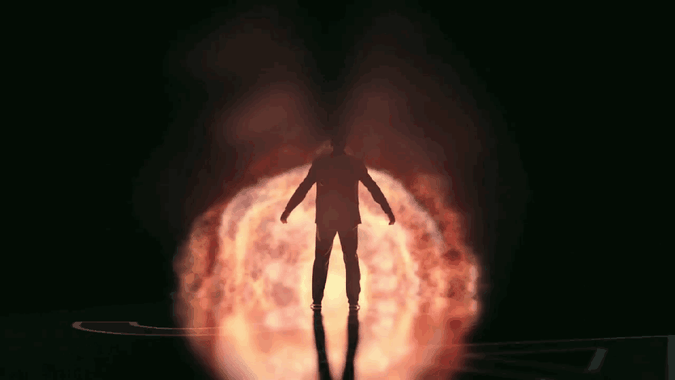cosmos [koz-mohs]
noun
1. The world, or universe, organized into an ordered system.
2. A complete, orderly, and harmonious system.
3. Order; harmony.
4. A tropical American plant of the genus Cosmos cultivated for their brightly colored flowers.
EX. Observing and considering the cosmos can make you feel small; after all, what is a man to the world? What is a planet to a star? What is a star to a galaxy? What is a galaxy to a universe? What is any finite object or objects observable compare to the seemingly infinite? Can one person, one finite observer, ever begin to comprehend the cosmos?
There are the sorts of questions that might come to mind when watching Cosmos: A Personal Voyage, the classic educational television series covering a variety of scientific subjects presented by astronomer Carl Sagan in 1980, and these are the sorts questions we still ask ourselves over 30 years later. Since Sagan's death in 1996, his widow, and co-creator of the original Cosmos program, Ann Druyan, along with Steven Soter, a producer from the original seires, and astrophysicist Neil deGrasse Tyson sought to bring a sequel to the original Cosmos to television. Unfortunately, they struggled for years with television networks who failed to see the broad appeal of the show. This seems slightly odd, considering the original award winning show has been seen by 500 million people in over 60 countries. So, how did we get a new Cosmos program?
I've already watched the series premier and, despite some controversy and criticism, it is a beautiful piece of television, both thought-provoking and soul-stirring. Tyson's soliloquizing against the brilliantly rendered imagery is a perfect combination. I recommend this sort of programming to anyone and everyone.
Many people are afraid to think about the immense reality the cosmos because it makes them feel small. But I don't concern myself with feeling small. I feel like, rather than being part of something small, rather than being part of something finite, and rather than there being a clear end of the discoveries to discover in sight, that we are all part of something infinite. And that may be intimidating, but it is also compelling.
So, join Neil deGrasse Tyson on the infinite journey of human discovery and keep moving toward the horizon. There is no end to the journey, but there are many discoveries. Life doesn't "end". It "ands".
Watch the first episode of Cosmos: A Spacetime Odyssey HERE.






